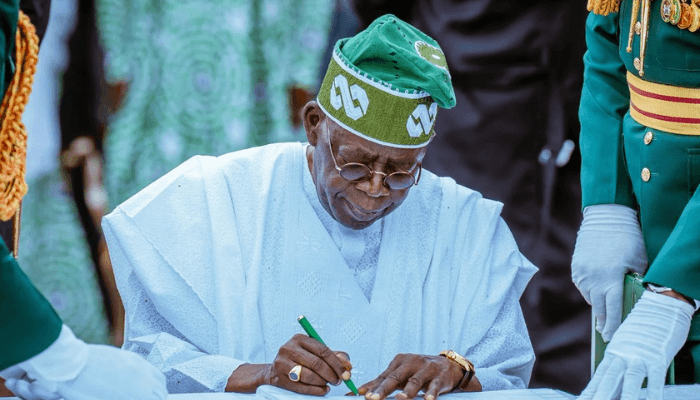Economists have highlighted that Nigeria’s proposed N47.9 trillion 2025 budget is the lowest in dollar value since 2018, despite being the largest ever in naira terms. The Nigerian Economic Society (NES) revealed that the devaluation of the naira has significantly eroded the budget’s purchasing power when converted to U.S. dollars.
In a statement signed by Adeola Adenikinju, NES President, the association noted that while the budget appears monumental in naira, its value in dollar terms tells a different story. Using the prevailing exchange rate of N1,679/$1, the proposed budget equals $27.96 billion, marking a 17.76% drop from the 2024 budget’s $34 billion. Even at the benchmark exchange rate of N1,400/$1 used for planning, the dollar value stands at $34.14 billion, still below previous years like 2022’s $39.8 billion and 2021’s $35.66 billion.

Adenikinju criticized the N1,400/$1 benchmark rate as overly optimistic, cautioning that it does not align with fiscal and monetary realities or expert forecasts for 2025. He pointed out that global projections place the naira’s value closer to N1,750/$1 or even N1,850/$1 in a base-case scenario, driven by uncertainties in oil revenue and fluctuating forex inflows.
He suggested a revision of the oil price benchmark from $75 to $70 per barrel to account for potential price shocks. While the current oil production target of 2.06 million barrels per day seems feasible, achieving it hinges on combating oil theft and pipeline vandalism. Global dynamics, such as a projected increase in U.S. oil production and the end of OPEC+ production cuts, could push oil prices as low as $40 per barrel in 2025, underscoring the need for caution.
The proposed budget deficit of N13.8 trillion, representing 3.87% of GDP, exceeds the Fiscal Responsibility Act’s 3% ceiling. NES urged the National Assembly to review past budgets from 2021 to 2024 to better understand an acceptable deficit limit for 2025. Data from 2024 already indicate a growing deficit, which reached 7.5% of GDP by August 2024, far exceeding projections.
Capital expenditure in the 2025 budget is pegged at N7.72 trillion, representing just 16% of total spending, a far cry from the 50% benchmark recommended for developing nations. This low investment in infrastructure could limit the budget’s impact on economic growth, employment, poverty reduction, and other critical welfare metrics.

NES emphasized the need for a robust budget framework addressing key socioeconomic issues like economic growth, job creation, inflation, and poverty reduction. Adenikinju stressed that an improved business environment, bolstered by security, infrastructure development, and strong governance, could attract foreign direct investment and empower key sectors like agriculture.
As Nigeria grapples with a challenging economic landscape, the 2025 budget underscores the urgent need for reforms that balance fiscal responsibility with developmental priorities to foster sustainable growth and social welfare.



